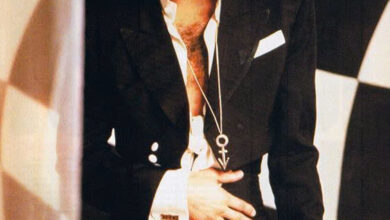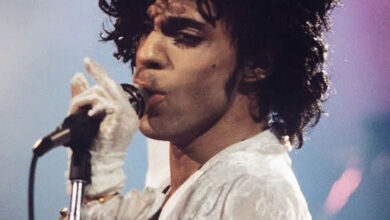Unpacking the Myth: The Real Meaning Behind Guns N’ Roses’s ‘Paradise City’
OPINION: This article may contain commentary which reflects the author's opinion.
When Guns N’ Roses released “Paradise City” in 1987, it became an instant anthem, capturing the raw energy of the rock scene. But beyond the explosive guitar riffs and rebellious attitude, the song holds a deeper meaning that fans and critics have debated for decades. At first glance, the lyrics seem to celebrate a place of freedom and joy, but there’s more to this track than meets the ear.
A Nostalgic Longing for Simplicity
Frontman Axl Rose once described “Paradise City” as a reflection of his longing for the simple life he left behind when he moved to Los Angeles. The phrase “Take me down to the Paradise City, where the grass is green, and the girls are pretty” evokes an idyllic image of a utopia that seems almost too good to be true. For Rose, this paradise may represent his small-town roots in Lafayette, Indiana, a place far removed from the glitz, glamour, and harsh realities of Hollywood.
The repetitive longing in the chorus hints at a desire to escape the chaos of fame and return to a more peaceful and genuine existence. This interpretation positions “Paradise City” as more than just a fun rock anthem—it’s a lament for innocence lost.
A City of Contrasts: Heaven and Hell
The lyrics are filled with contradictions. On one hand, the chorus paints an alluring picture of an Eden-like city, but the verses tell a different story. As Rose sings, “I’m a hard case that’s tough to beat / I’m your charity case, so buy me something to eat,” the listener is jolted back to reality. The glamorous city he sings about may promise dreams, but for many, it delivers struggle and hardship.
For Guns N’ Roses, who were living in the gritty underbelly of Los Angeles at the time, “Paradise City” also represents the dark side of the American Dream. While the city may appear to offer fame, fortune, and freedom, it can also be a place where people get lost, consumed by excess and overwhelmed by the pressures of success.
The Universal Appeal of Escape
One of the reasons “Paradise City” resonates so deeply with audiences is its universal theme of escape. Whether you’re an aspiring musician trying to make it in a big city or someone just trying to break free from the monotony of daily life, the song speaks to the desire to find a better place—a sanctuary where life is easier and the burdens are lighter. It’s this emotional relatability that has cemented the song as a rock classic.
Yet, it’s also worth noting that the paradise Rose sings about is elusive. The grass may not be greener, and the girls may not be prettier. In reality, the song’s paradise is likely a metaphor for hope, something just out of reach—a mirage that keeps people moving forward despite life’s challenges.
A Timeless Anthem of Rebellion
At its core, “Paradise City” is more than just a song about a physical place. It’s an anthem for anyone who has ever felt the need to rebel against their surroundings and yearn for something better. For Rose and the rest of Guns N’ Roses, it captured the tension between fame and authenticity, the pull between the dreams they were chasing and the harsh reality of life in the spotlight.
In many ways, the song is a perfect encapsulation of the band itself: a chaotic blend of beauty and destruction, of dreams and disillusionment. “Paradise City” doesn’t offer any easy answers—just like life, it’s a journey filled with ups and downs, beauty and pain.
Conclusion
“Paradise City” continues to captivate listeners because it speaks to a universal truth—the desire for escape, the hope for a better life, and the understanding that paradise is never quite as perfect as we imagine. It’s this mix of raw energy, emotional depth, and lyrical contradictions that makes the song not only a rock anthem but also a profound commentary on the human experience.
So, while “Paradise City” may have started as a dream for the members of Guns N’ Roses, it has since become a reflection of our own search for paradise—wherever that may be.



